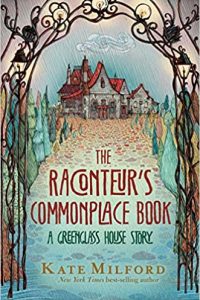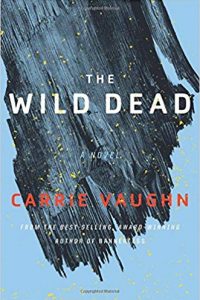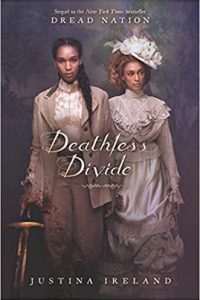Gabino Iglesias Reviews Witches by Brenda Lozano
 Witches, Brenda Lozano (MacLehose Press 978-1-529-41227-7, $22.04, 271pp, hc) April 2022.
Witches, Brenda Lozano (MacLehose Press 978-1-529-41227-7, $22.04, 271pp, hc) April 2022.
Renowned Mexican author and PEN Award winner Brenda Lozano’s fourth novel Witches weaves together two parallel narratives that delve deep into the lives of two very different women who live in the same country but inhabit different worlds. This vivid novel, translated from the Spanish by Heather Cleary, almost reads like two separate novellas tied together loosely by one narrative point, but the very different voices and the lives of the two main characters make it work.
Feliciana is an indigenous curandera who lives in the very small town of San Felipe in Jalisco, Mexico. She doesn’t speak Spanish and doesn’t know how to read or write, but she has been given gifts that allow her to heal people, both physically and spiritually. Throughout her life Feliciana has taken care of locals and international celebrities. There have been documentaries made about her gifts and newspaper and magazine articles written about what she does. Far from Feliciana, in Mexico City, lives Zoe, a journalist who has a very deep connection to her mother and sister. The two women meet when Zoe covers the murder of Paloma, Feliciana’s cousin, a trans woman.
More than a novel with a standard narrative arc, Witches tells the story of Feliciana and Zoe, exploring the most significant events of their lives and chronicling the decisions and experiences that shaped them. They live in the same country at the same time, and Paloma’s story brings them together, but most of the novel is about them, apart, and the ways they understand the world.
While this is a book with two separate stories and two main characters, it possesses a central idea that gives it a sense of cohesion. It’s something Zoe’s mother tells her after she ‘‘sees’’ something and they both go to rescue Zoe’s sister from a man who wanted to abuse her: ‘‘All women… are born with a bit of bruja in them, for protection.’’ Zoe’s mother has an instinct for things, which is far from the active work – potions, healings, burying of names, rituals, etc. – Feliciana is known for, but they are the same in the sense that both of them embrace their gifts, their sixth sense, that ineffable talent women have for dealing with things, which Zoe’s mother calls simply ‘‘intuition.’’
For more than half the novel, Feliciana and Zoe seem to live on different planets. As they recount their lives, the differences are huge and very obvious. However, there is something slightly supernatural that brings them together, even if it’s not approached directly in the narrative. Also, both of them narrate their chapters, which alternate, and their voices are very different. However, that difference only makes them more interesting when seen next to each other. Zoe is an educated modern woman with a knack for telling stories about her sister. Feliciana, on the other hand, has a very peculiar voice with a unique rhythm and way of seeing life, death, love, family, and her work through a distinctive, supernatural lens:
And so there are deaths of companionship, there are people who die so they can follow the one who went before them, then death lays its egg in a person’s soul because they ask it to and if it doesn’t they try to take its egg the way people snatch things in the market, but death is always there to trill its song.
By presenting two women who are so different from one another, Lozano shows readers two cultures, two histories, two ways of living, two Mexicos, and two ways of interpreting the world. Her simple, unadorned prose is deceptive because readers think they are reading about Zoe’s childhood or about Feliciana’s husband, who went to war and returned an abusive alcoholic who hit their three children, but it soon becomes clear to those paying attention that they are also reading about the way we rarely know someone completely, and that knowing others is impossible until we truly know ourselves.
Witches is about magic, healing, and how your experiences affect they way you process trauma. Lozano is a keen observer who brings two very different worlds to the page with vibrant passages and a lot of heart. Work in translation is crucial because it opens doors to other places, ideas, identities, and cultures, and that’s what this novel accomplishes very well.
This review and more like it in the July 2022 issue of Locus.
 While you are here, please take a moment to support Locus with a one-time or recurring donation. We rely on reader donations to keep the magazine and site going, and would like to keep the site paywall free, but WE NEED YOUR FINANCIAL SUPPORT to continue quality coverage of the science fiction and fantasy field.
While you are here, please take a moment to support Locus with a one-time or recurring donation. We rely on reader donations to keep the magazine and site going, and would like to keep the site paywall free, but WE NEED YOUR FINANCIAL SUPPORT to continue quality coverage of the science fiction and fantasy field.
©Locus Magazine. Copyrighted material may not be republished without permission of LSFF.







